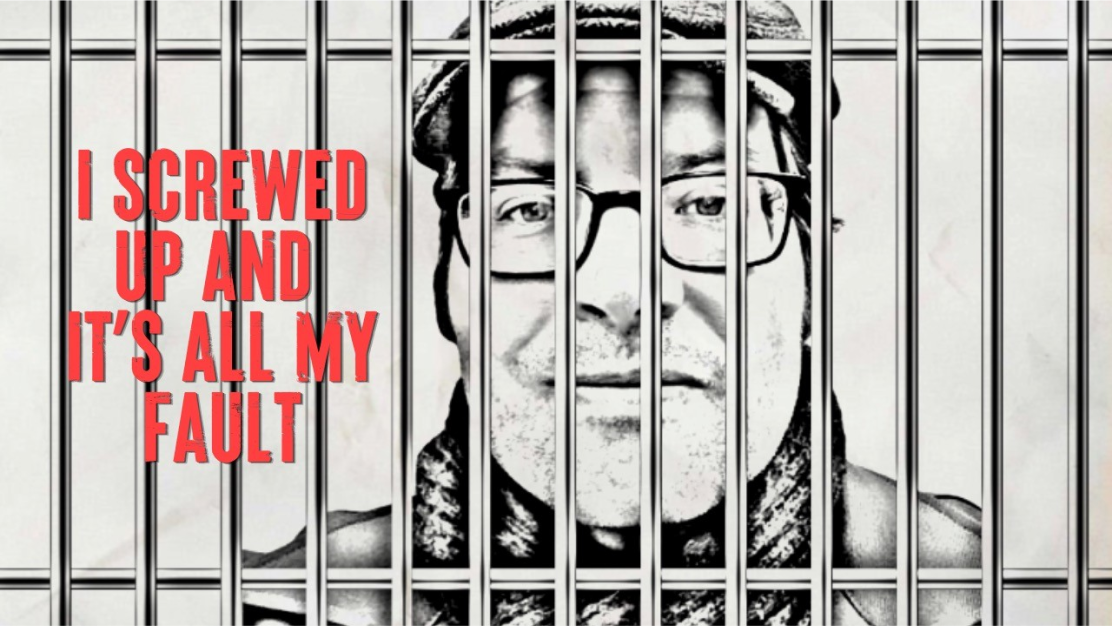“I Screwed Up And It’s My Fault”
by Greg Larkin CEO of Punks & Pinstripes
For many years the patron saints of #siliconvalley urged us to fail fast. Well, they’ve failed spectacularly. And I haven’t heard a whisper of remorse, introspection, or ownership from Greg Becker, Peter Thiel, #SBF or anyone else who created the crisis that has engulfed the world economy.
Oh, how I wish #svb #CEO Greg Becker would bypass his lawyers and write an OpEd in the The Wall Street Journal with a headline like, “I screwed up and it’s all my fault.”
The first step of crisis management is radical ownership and accountability. No one who understands what’s broken will feel safe giving an honest appraisal of damages unless the leader steps forward and owns their own mistakes first.
So, this article is a countermeasure to a cultural pandemic of executive unaccountability. It is an incomplete list of all the ways I became part of the problem. I hope it inspires others to lead with authenticity and accountability. I urge all of you to write your own #Iscrewedup articles so that, together, we can reverse the tide of unaccountablity.
Here's my first installment:
1.Innovation Obstructionists are essential. Anytime anyone tries to build something new in a big company they invariably slam into the “Wall of Obstructionists.” In my first book I called this the “Wall of Can’t.” The obstructionists are: the Skeptics, The Cops, The Traditionalists, The Territorialists, and The Capitalists. And every big breakthrough is only possible because someone anticipated the obstructionist defense and called the right play to overcome it. I’ve spent a lot of time devising strategies for overcoming obstructionists.
But obstructionists are essential. Obstructionists are what prevents innovation utopianists like Elon Musk, Peter Thiel, and Greg Becker from creating financial crises.
Not all obstructionism is fueled by self-promotion and self-preservation. Some is - many executives thwart progress for selfish reasons - but most isn’t. Innovation obstructionism is often the last resort of someone who is a prudent risk manager. It’s the last resort of someone who is alarmed by how speculative investments have cannibalized a company’s once-stable earnings. Obstructionism comes from someone who cares so much about the health of the company that they’ll risk a class action lawsuit from a powerful billionaire like Elizabeth Holmes or Elon Musk, or Greg Becker, rather than say ‘screw this,’ collect a severance, and quit. I’ve demonized a lot of smart, committed risk mitigators by calling them dangerous obstructionists. I shouldn’t have.
Just because Wall Street is wrong doesn’t mean fintech is right. Working on #wallstreet in the immediate aftermath of the 2008 financial crisis was a shock for me. It was immediately clear that the cultural root cause of the crisis was completely unaddressed. People were deferential and obsequious to their billionaire bosses, even when they knew that what was happening was predatory, unethical, destabilizing, or just stupid. There was an unspoken cultural norm that when you accumulated power you got to abuse it. People spent an inordinate amount of time and energy on self-preservation and self-promotion, and very little time creating anything of value. I saw too many brilliant, honest creators who built incredible, essential, high-growth breakthroughs quit or get fired because they had no interest in “playing the game.” I was one of them: I quit my last job on Wall Street in 2015.
I felt vindicated by Wall Street’s Entrepreneur Exodus. Many of my friends who left wound up building billion-dollar startups outside of Wall Street. Many of them created a cultural oasis for the visionaries and innovators who felt ground down by the culture. Silicon Valley Bank was one such cultural outlier (although I never had any interaction with them). Its work-from-anywhere, embrace the new economy, and triple your stock price strategy was very much in keeping with the bank that I hoped would one day eclipse the Wall Street stalwarts I left behind. Again, I never rooted specifically for SVB. But I certainly hoped for someone like them to win.
But there’s a middle ground. You can have a fortress balance sheet (Jamie Dimon’s famous description of JPMorgan Chase & Co. during the 2008 crisis), and be the financial engine of innovation. You can create a great home for great innovators to do their best work inside of Big Finance. There’s a growing cadre of bank executives who flatten the hierarchy, purge the a$$holes, and breathe new life into an old business. A bank can have freedom and responsibility. I framed it as a zero-sum choice between one or the other. There’s a smart balance between the two.
I’m deeply flawed and error prone. And I’m sure I’ve been guilty of more than I wrote here. So, let me know what I’ve said or done that you disagreed with.
And, if you feel especially bold, share your own remorse and accountability.
Y’all are my heroes.
Stay tuned for the upcoming playbook on navigating a crisis from the members of Punks & Pinstripes, a private network of 100 badass executives, who lead with humility, and call me on my bull$hit. Link here if you want what we have.

